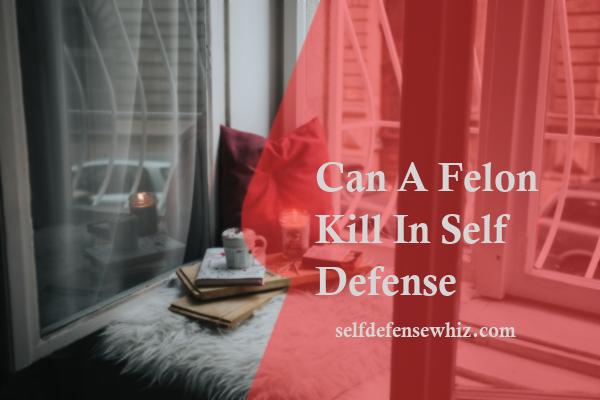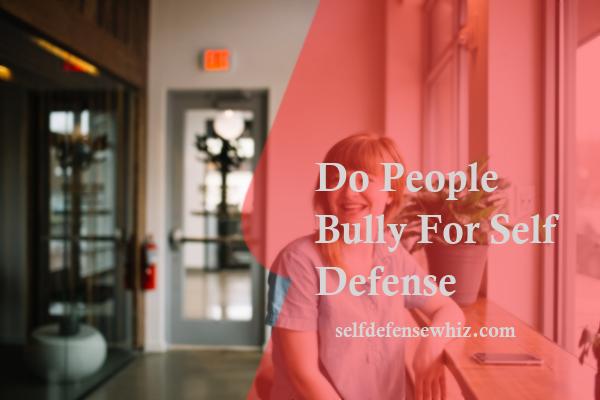Can You Shoot In Self Defense
In a world that can sometimes be unpredictable and dangerous, self-defense has become an increasingly important topic. We often hear stories of individuals being victimized and left defenseless, prompting us to question whether we have the right to protect ourselves in such situations. **The short answer is yes**, but the details surrounding the use of firearms for self-defense can be quite complex and vary from one jurisdiction to another. In this blog post, we will explore the legality and ethical considerations of using firearms in self-defense scenarios, shedding light on the factors that determine whether shooting in self-defense is deemed justifiable or not.
Can You Shoot In Self Defense
In many jurisdictions, the concept of self-defense allows individuals to use reasonable force, including deadly force, to protect themselves or others from imminent harm or danger. This includes the option to shoot an assailant if necessary. However, the specific laws regarding self-defense and the use of firearms can vary significantly depending on the country, state, and even local jurisdiction. Therefore, it is crucial to understand and abide by the specific laws and regulations in your area to ensure that your actions are within the boundaries of the law.
Self-defense is typically justified when there is a reasonable belief of an immediate threat of death or serious bodily harm. It is important to note that the degree of force used in self-defense should be proportionate to the threat faced. Engaging in self-defense with deadly force, such as shooting, should only be considered as a last resort when there is no other reasonable means of escape or defense.
Pro-Tip: When it comes to self-defense and the use of firearms, it is highly recommended to seek proper training in firearm safety and self-defense tactics. Familiarize yourself with the laws pertaining to self-defense in your jurisdiction and ensure that your actions align with those laws. Remember, each situation can be unique, and it is always crucial to assess the threat and respond accordingly.
When Is It Legal To Shoot In Self-Defense?
When it comes to self-defense, the question of whether or not you can shoot is a complex and highly debated topic. Generally, most jurisdictions allow the use of deadly force, including shooting, if an individual reasonably believes that their life or the life of another person is in immediate danger. However, the specific criteria and circumstances in which this is permissible can vary depending on the laws of the country, state, or even local jurisdictions.
In many places, the concept of “stand your ground” or “castle doctrine” is recognized, which essentially allows individuals to use deadly force without any duty to retreat while in their own home or another place where they have a legal right to be. This means that if someone breaks into your home and poses a threat to your safety or the safety of others present, you may be justified in shooting them in self-defense.
However, it is crucial to note that the use of deadly force in self-defense should always be a last resort. The principle of “proportional force” dictates that you should use no more force than is necessary to protect yourself or others from harm. This means that shooting should only be considered if there is no other reasonable option available and if there is an immediate and grave threat to life. Additionally, it is crucial to comply with any legal requirements, such as notifying law enforcement authorities and cooperating fully with their investigation.
In conclusion, the use of firearms in self-defense is a complex issue that depends on various factors, including the specific circumstances, the jurisdiction, and the individual’s reasonable perception of immediate danger. It is essential to understand and comply with the laws and regulations specific to your area and always prioritize self-preservation while keeping in mind the principle of using proportional force.
What Are The Potential Legal Consequences Of Shooting In Self-Defense?
In many jurisdictions, individuals have the legal right to use force, including lethal force, in self-defense if they believe their life is in immediate danger and there is no other reasonable alternative to protect themselves. This principle, commonly known as the “stand your ground” or “castle doctrine,” grants individuals the right to defend themselves with deadly force, such as shooting, without having to retreat first. However, the specific laws regarding self-defense vary significantly depending on the jurisdiction.
One key element in determining the legality of shooting in self-defense is the concept of “reasonable belief.” It means that the person using force must have a genuine and reasonable belief that their life is in imminent danger, based on the circumstances at the time. The threat posed must be immediately harmful or deadly, and the individual must have had no reasonable opportunity to escape the situation. Moreover, some jurisdictions may require individuals to use reasonable force as well, meaning that shooting should not be excessive in relation to the perceived threat.
It is important to note that self-defense laws are subject to interpretation and can be influenced by various factors, such as the person’s level of training and the reasonableness of their actions. Furthermore, self-defense claims can be subject to investigation and review after the fact, to determine if the situation truly warranted the use of lethal force. Ultimately, the ability to shoot in self-defense depends on the specific circumstances and the laws of the jurisdiction in question.
How Does The Use Of Force In Self-Defense Vary By Jurisdiction?
The right to use proportionate force for self-defense is recognized in many countries around the world, although the specific laws may vary. In general, the use of lethal force, such as shooting, is seen as a last resort in self-defense situations. The key consideration is whether there is an immediate threat of death or serious bodily harm. In such cases, individuals are often justified in using reasonable force to protect themselves or others. However, it is crucial to understand that the use of force in self-defense is typically limited to what is necessary and proportionate to the threat faced.
When it comes to firearms, the decision to shoot in self-defense should never be taken lightly. It is important to remember that the primary purpose of self-defense is to neutralize the threat, not to cause harm or take revenge. Each situation must be evaluated on its own merits, considering factors such as the level of danger, availability of alternative options, and one’s ability to safely employ the weapon. The use of a firearm can have severe consequences, both legally and morally, so individuals should exhaust all non-lethal measures first, if possible. It is also vital to be aware of local laws and regulations pertaining to firearms and self-defense, as they differ from jurisdiction to jurisdiction.
Additionally, the concept of self-defense is intertwined with the notion of reasonable fear. If an individual reasonably perceives an imminent threat that could result in serious harm or death, they may be justified in using force, even if it later turns out that the threat was not as severe as initially believed. However, this does not mean that an individual can shoot without any reasonable justification. The circumstances must be objectively evaluated to determine whether the use of force, including shooting, was reasonable given the perceived threat. Courts often assess the reasonableness of self-defense action by assessing what a reasonable and prudent person would have done in the circumstances. Overall, self-defense is a complex legal and ethical issue that requires careful consideration of the specific situation and applicable laws.
What Are The Alternative Options To Shooting In Self-Defense?
The question of whether it is legally permissible to shoot in self-defense is complex and varies depending on the jurisdiction. In general, most legal systems recognize the right to self-defense when a person reasonably believes that they are in immediate danger of death or serious bodily harm. This means that individuals have the right to use force, including lethal force, to protect themselves or others from imminent harm.
However, there are important factors that must be considered when assessing the legality of shooting in self-defense. These include the principles of proportionality and reasonableness. Proportionality means that the force used should be commensurate with the threat faced. In other words, lethal force should only be used when no lesser force would be adequate to prevent the harm. Reasonableness, on the other hand, requires that a person’s belief in the need for self-defense must be objectively reasonable under the circumstances.
In order to successfully claim self-defense, it is crucial to establish that there was a genuine and imminent threat of harm and that the response used was a reasonable and proportional means of defense. It is also important to note that some jurisdictions impose a duty to retreat, meaning that individuals must attempt to withdraw or avoid the situation before resorting to force. Failure to do so can often limit or negate the claim of self-defense. Ultimately, determining whether shooting in self-defense is legally justified depends on a careful assessment of the particular circumstances and the applicable laws in a given jurisdiction.
What Factors Determine If A Shooting Is Justified In Self-Defense?
When it comes to self-defense, the use of lethal force, such as shooting, is a subject of much debate. The question of whether an individual can shoot in self-defense depends on various factors, including the immediate threat to one’s life. In general, most jurisdictions recognize the right to use deadly force if there is a reasonable belief that it is necessary to prevent serious bodily harm or death.
The principle of self-defense is rooted in the concept of protecting oneself from harm. However, it is important to note that the use of deadly force should be proportionate to the threat faced. In other words, if an individual reasonably believes that their life is in immediate danger or that they risk severe bodily harm, shooting in self-defense may be justified. However, the situation must be objectively evaluated, and alternative options for self-preservation should be considered before resorting to lethal force.
The legality of shooting in self-defense also relies heavily on the specific laws of the jurisdiction. Different countries, states, or regions have varying self-defense laws, which determine the circumstances under which the use of lethal force is justified. Some jurisdictions have ‘stand your ground’ laws that eliminate the duty to retreat before employing self-defense measures, while others have ‘duty to retreat’ requirements, meaning individuals must attempt to escape or seek safety before resorting to the use of lethal force. It is crucial to understand the laws and regulations in your particular area to ascertain when shooting in self-defense may be legally permissible.
Conclusion
In conclusion, the concept of shooting in self-defense is a complex and controversial topic that varies across different legal jurisdictions. While the right to self-defense is generally acknowledged, the use of deadly force is typically only justified in situations where there is an imminent threat of serious bodily harm or death. It is crucial to familiarize oneself with the specific laws and regulations within their jurisdiction to understand the requirements and limitations of self-defense. Ultimately, the decision to shoot in self-defense should always be exercised with utmost caution and as a last resort when all other reasonable options have been exhausted.







